Did I get your attention? ;)
I’m just skimming through other fantasy blogs and found some interesting tidbits (that will ultimately somewhat justify the title). The first is an article written by China Miéville, unconventional fantasy writer between the most praised and known for his books set in the city-state of New Crobuzon. Think Burroughs’ Naked Lunch mixed with urban fantasy, Starship Trooper’s bugs and a strong steampunk vibe.
Tolkien – Middle Earth Meets Middle England by China Miéville
He deliberately tried to sound antique and ‘epic’. Cliches constantly snuffle up to us like moronic dogs. Laughter comes in ‘torrents’, brooks ‘babble’, and swords never fail to ‘flash’. The dialogue sounds faintly ridiculous, like opera without the music. Even 50 years ago this cod Wagnerian pomposity was stilted and clumsy. ‘Fey he seemed,’ says JRR – in Middle Earth, rare the clause is that reversed isn’t.
The linguistic cliches are matched by thematic ones. The stories are structured by moralist, abstract logic, rather than being grounded and organic. Tolkien wrote the seminal text for fantasy where morality is absolute, and political complexities conveniently evaporate. Battles are glorious and death is noble. The good look the part, and the evil are ugly. Elves are natural aristos, hobbits are the salt of the earth, and – in a fairyland version of genetic determinism – orcs are shits by birth. This is a conservative hymn to order and reason – to the status quo.
The hobbits’ ‘Shire’ resembles a small town in the Home Counties, full of forelock-tugging peasants and happy artisans. Though he idealises the rural petty bourgeoisie, Tolkien treats them with enormous condescension. ‘It would be a grievous blow’, he says, if the Dark Power were to claim the Shire – to translate, if rural workers were industrialised. Because the good professor loves them so, with their hand-mills and their funny little rural ways. Not that he would want to be one, of course – good lord, no. He has a PhD, don’t you know.
The second piece is a very long Q&A with Terry Goodkind that I found while reading Pat’s Hotlist. He has a very gratuitous quote there but I wanted to read more about it and so followed the link to the whole Q&A.
I never read Goodkind, some of my friends read the first book and all agreed it was terrible. A fantasy soap opera with characters whining all the time. And on the westeros forums I read some truly abysmal excerpts that made me align with the very harsh critics you can read just about everywhere. Like this one that will remain in history:
The bird let out a slow chicken cackle. It sounded like a chicken, but in her heart she knew it wasn’t. In that instant, she completely understood the concept of a chicken that was not a chicken. This looked like a chicken, like most of the Mud People’s chickens. But this was no chicken. This was evil manifest.
So I went reading that Q&A with these kinds of bad expectations but I was surprised. He seems to answer each question with attention. While a bit pretentious in tone he seems to have very clear ideas in his mind, with very little left to the case and in a way that intrigued me. At least to delve and know more about those ideas. I’m always interested in those who seem to know all and do no show a doubt. I don’t need to agree with a vision to be interested, as long it is founded on something.
Reading from the forums I know that people bitch at Goodkind mostly because of rape themes and because he openly tries to shove his own philosophical ideas down the readers’ throats. And reading just the Q&A I can see from where it all comes. But at the same time I’m also intrigued and now willingly to try to read a series that is strongly subjective and that I know runs deeper than the level of the plot. The way Goodkind describes his work makes me believe that it was not superficial, and he motivates what he says, goes a great length into explaining it, so I’m rather sure it’s there.
For example those parts where he explain the real main theme of some of the books:
In a good novel the theme is the abstract, the plot the concretes that explain that abstract. They are inseparable.
The theme of CHAINFIRE, for example, is belief in one’s self. The plot is one man’s struggle to prove what he believes to be true when everyone else thinks he is wrong. The theme of NAKED EMPIRE is the existence of evil. The plot is the struggle to get men to recognize evil for what it is, fight for their own lives, and to deserve victory.
The theme of FAITH OF THE FALLEN is the role of free will in man’s existence — the abstract concept of the importance of freedom to man’s existence. The plot is the battle for individual liberty in a altruistic-driven collectivist society. The concretes of Richard’s struggle make the abstract concept understandable and clear. (And because it is so clear it enrages those who want to cloud the issue so as to champion altruism; the naked hate they exhibit and vicious methods they use only go to prove the book’s point that altruism breeds force and brutality and produces only suffering.)
Which is also consistent with what Erikson wrote about fantasy: the most effective way to deliver a symbol. Make it real.
And this is the part with the gratuitous quote:
In that book Richard learned that democracy does not make something right. People use democracy as a free-floating abstraction disconnected from reality. Democracy in and of itself is not necessarily good. Gang rape, after all, is democracy in action.
All men have the right to live their own life. Democracy must be rooted in a rational philosophy that first and foremost recognizes the right of an individual. A few million Imperial Order men screaming for the lives of a much smaller number of people in the New World may win a democratic vote, but it does not give them the right to those lives, or make their calls for such killing right.
Democracy is not a synonym for justice or for freedom. Democracy is not a sacred right sanctifying mob rule. Democracy is a principle that is subordinate to the inalienable rights of the individual.
Many of the issues in the series deal with these subjects. Sometimes when people read the books again after they have satisfied their frantic, desperate desire to know what will happen next, they discover many of these issues in a new light.
Without talking about that unfortunate example, I tend to agree with him. Democracy isn’t the truth. If you asked people if the earth was flat before Nicolaus Copernicus, they would answer that, yes, the earth is flat.
And people voted for Berlusconi and George Bush in the US. If that’s not the proof that democracy is flawed then I don’t know what it can be.
Democracy only works on a simple principle: mistake is reparable.
But in modern times not only we know that it’s not always the case (people would say, about ecology), but that it’s reparable only when there’s conscience of it. And nowadays all communication studies are dealing with the power of persuasion and make believe. The way to bend the consciousness, drive the mass culture, create meaning for a purpose. The use of strong symbols to obtain persuasion.
Today information is important because without objective information you can’t have consciousness. And without consciousness democracy just doesn’t work.
There are also other interesting parts, for example where Goodkind explains his view on the magic:
One of the reasons people get so technically absorbed in the magic in my books is because (as I’ve said in the section on my philosophy — please go back and read it if you haven’t) I use magic very differently than most other authors. The magic in my books is treated as an existent — a thing that exists. Things that exist have their own identity and therefore behave according to the laws of that identity. That’s the way I make magic in my books behave — by the laws of its own identity. I treat it almost as a mathematical equation. People don’t close their eyes and grunt and wish to make it work, but rather they must discover the natural laws by which it functions, just as they must learn how to make a bow and arrow.
I think I’ll give it a try as I’m the kind of reader who easily moulds the taste to the author’s purpose. In the meantime my to-read list grows to scary levels. I should finish “The Blade Itself” before the end of the year, so I’ll write about it next. I’m truly loving it. I’m not going to show much integrity if I keep praising just every book I read (but then I’m also picking carefully what is laregly recognized as best), we’ll see if things change with Goodkind.
By the way, when on a forum everyone agrees something sucks, and yet dedicate to it no less than 32 threads, there must be something wrong.
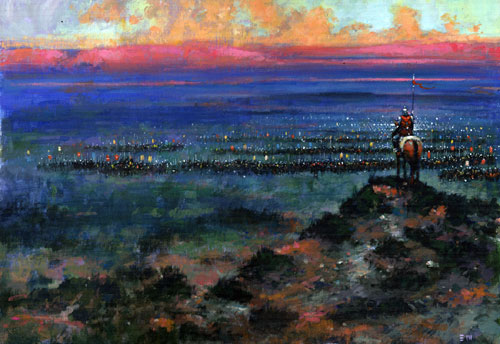
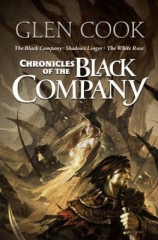
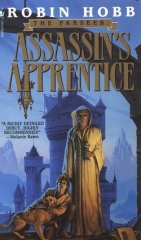
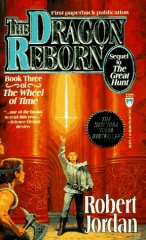

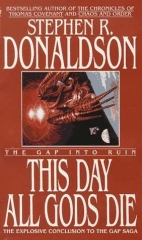
 Some rectifications on my
Some rectifications on my 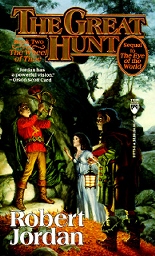 I don’t plan to turn this into a fantasy book review site because those reviews are in their own ways a literary work and I can’t expect to do it without a perfect grasp of English (which is again my second language). I also read slowly so I can’t make a satisfying blog with reviews. They would appear too rarely. So here are some conclusive considerations about “The Great Hunt”.
I don’t plan to turn this into a fantasy book review site because those reviews are in their own ways a literary work and I can’t expect to do it without a perfect grasp of English (which is again my second language). I also read slowly so I can’t make a satisfying blog with reviews. They would appear too rarely. So here are some conclusive considerations about “The Great Hunt”.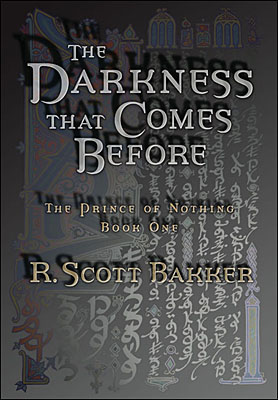 .
. 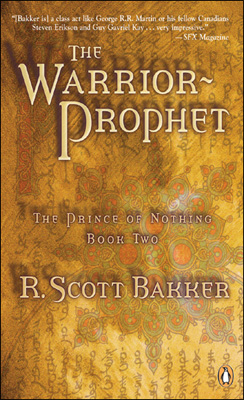 .
. 
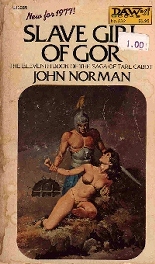 Apparently there are still some who think certain books deserve to go in the fire.
Apparently there are still some who think certain books deserve to go in the fire.